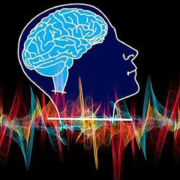Ultrasound could be used to treat psychiatric disorders
Imagine passing an exam, and thinking your success was down to the socks you wore or the number of biscuits you’d eaten, rather than the hours of study you’d put in.
This is an issue of ‘credit assignment’, where a person or animal attributes the wrong outcome to an event, exists in a variety of psychiatric disorders, like addiction or OCD where people still believe that drug consumption on engaging in certain rituals will lead to positive outcomes.
Now a new study in macaque monkeys has shed light on which parts of the brain support credit assignment processes and, for the first time, how low-intensity transcranial ultrasound stimulation (TUS) can modulate both brain activity and behaviours related to these credit assignment processes.
While currently developed in an animal model, this line of research and the use of TUS could one day be applied to clinical research to tackle psychiatric conditions where maladaptive decisions are observed.
After stimulating this brain area, the animals in the study became more exploratory in their decisions. As a consequence of the ultrasound neuromodulation, behaviour was no longer guided by choice value – meaning that they could not understand that some choices would cause better outcomes – and decision-making was less adaptive in the task.
The study also showed that this process remained intact if another brain region (also part of the prefrontal cortex) was stimulated; showing for the first time how task-related brain modulation is specific to stimulation of areas that mediate a certain cognitive process.
The full study, entitled Ultrasound modulation of macaque prefrontal cortex selectively alters credit assignment–related activity and behaviour is available to view in the journal Science Advances.
Release date: 16 December 2021
Source: University of Plymouth




